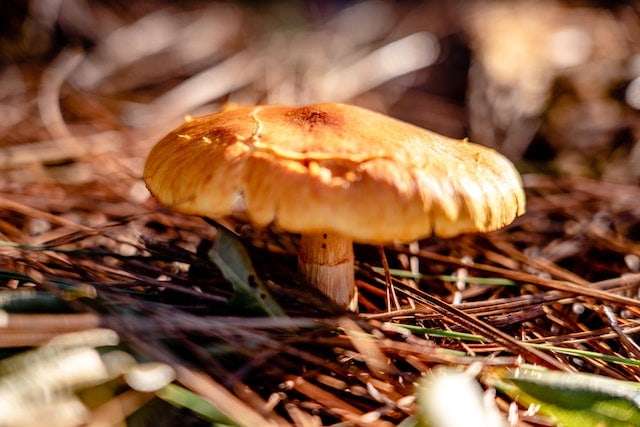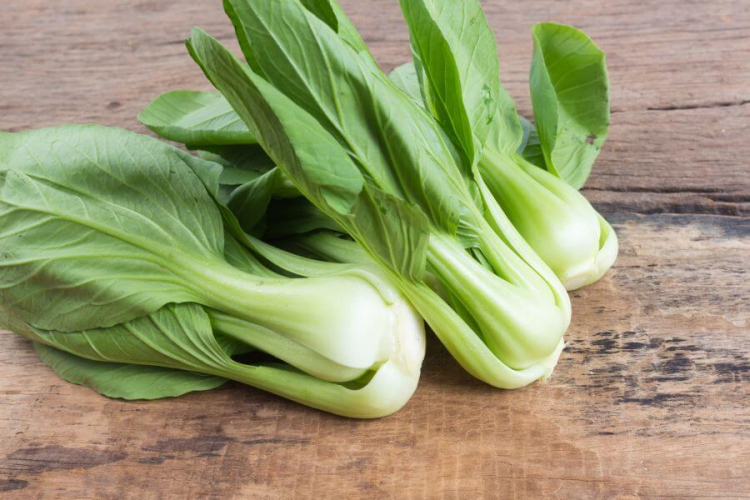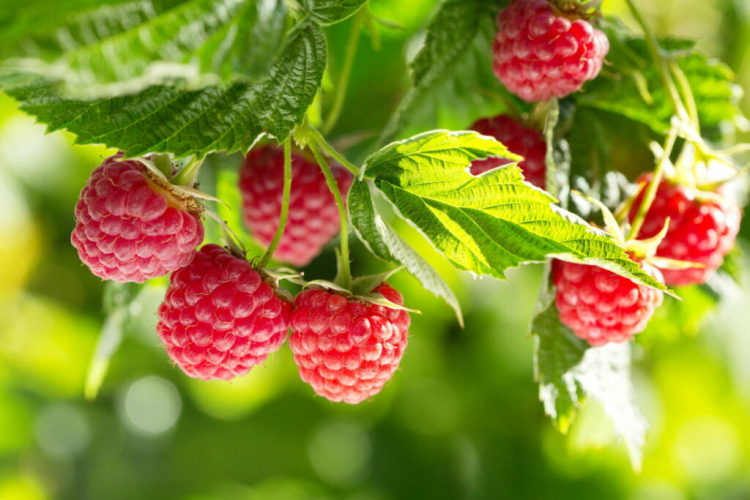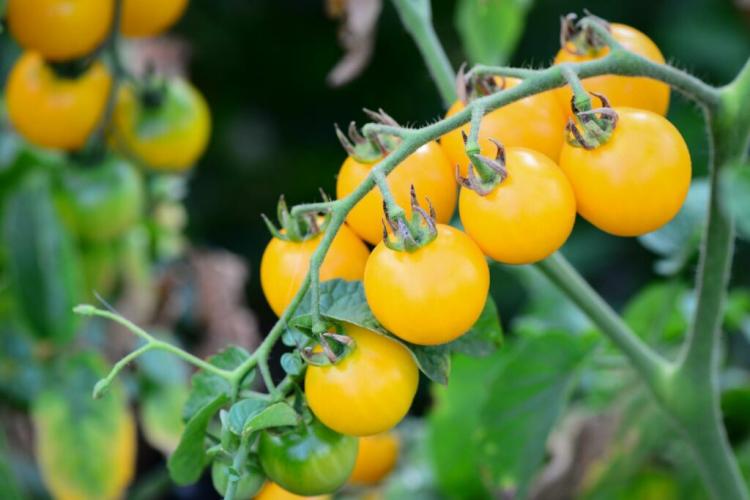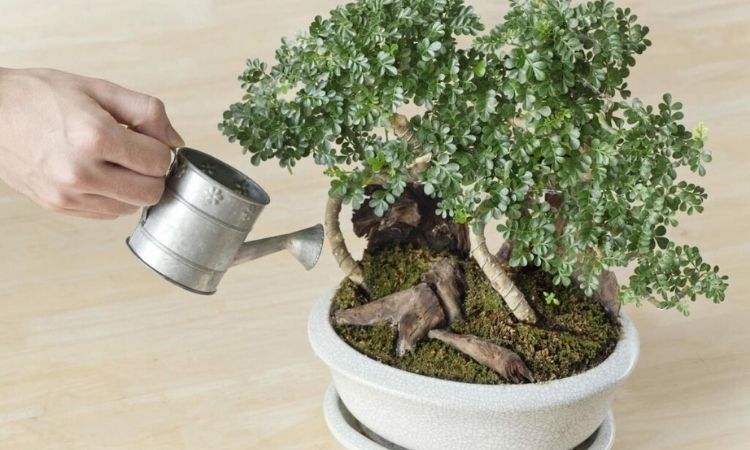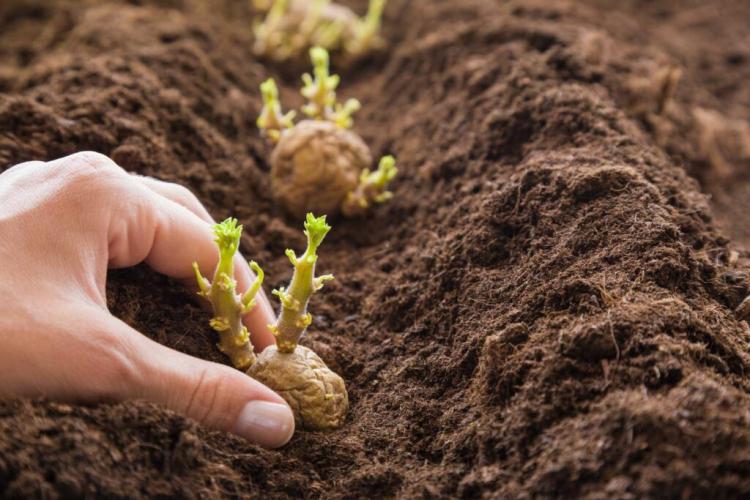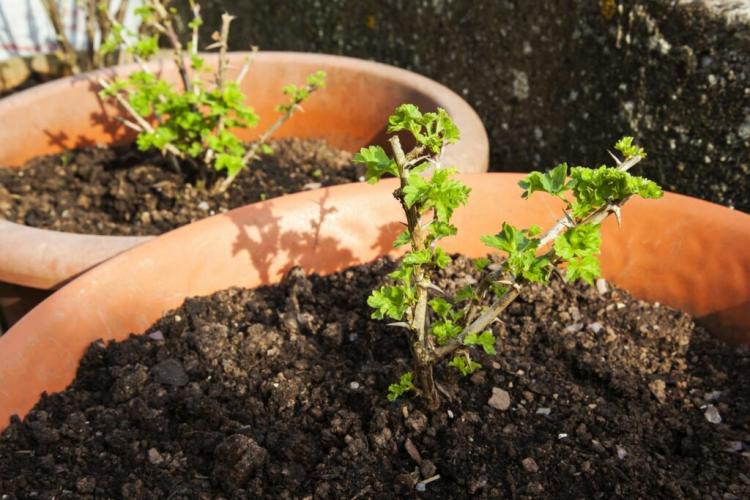Plants that don’t like mushroom compost
Is mushroom compost good for your plants? You’ve probably heard that mushroom compost is popularly used in most vegetable and flowering plants, fruit trees, and herbs.
Mushroom compost is an organic fertilizer made from decaying mushrooms and other organic materials used in mushroom farming. It is often referred to as spent mushroom compost because it is the residue from the compost used after a mushroom harvest.
The commercial variety is called mushroom substrate, which is made from a mixture of gypsum or wheat straw and horse or poultry manure.
This compost is an excellent addition to your garden soil because it is high in organic matter. It can enrich vegetable gardens, flower beds, orchards, trees, and newly established lawns.
Mushroom composts are also a perfect soil amendment because they loosen soil structure and help retain moisture, providing a better environment for most garden plants.
But not all plants like mushroom compost. Some vegetable plants, root crops, fruit bushes, and ericaceous plants thrive in acidic soil rather than alkaline soil.
To know if mushroom compost is suitable for the plant you’d like to grow, here’s a list of plants that don’t like mushroom compost, what makes them dislike this compost, and what can be used as an alternative.
Why Do Some Plants Dislike Mushroom Compost?
Table of Contents
Some plants dislike mushroom compost because of its high salt concentration which makes it difficult for these plants to grow and thrive.
As we know, the health and growth of plants are determined by the soil pH. If the pH is too high (that is, too alkaline) some nutrients cannot be efficiently absorbed by plant roots. If it is too low (too acidic), some nutrients will not be available and this can increase toxic elements in the soil and reduce plant production.
For most plants, the optimum soil pH is between 6.5 to 7.5. For acid-loving, lime-hating plants, it can range from 4.0 to 6.0 on the pH scale.
Mushroom compost does not sit well with plants that thrive in acidic soil because it is alkaline in nature. It neutralizes acids in the soil, which is not ideal for acid loving plants.
Also, the high salt levels in mushroom compost burn plants and stunt their growth. They can kill germinating seeds and plant seedlings before they are even fully established.
Below are some of the plants that are averse to mushroom compost.
1. Berries
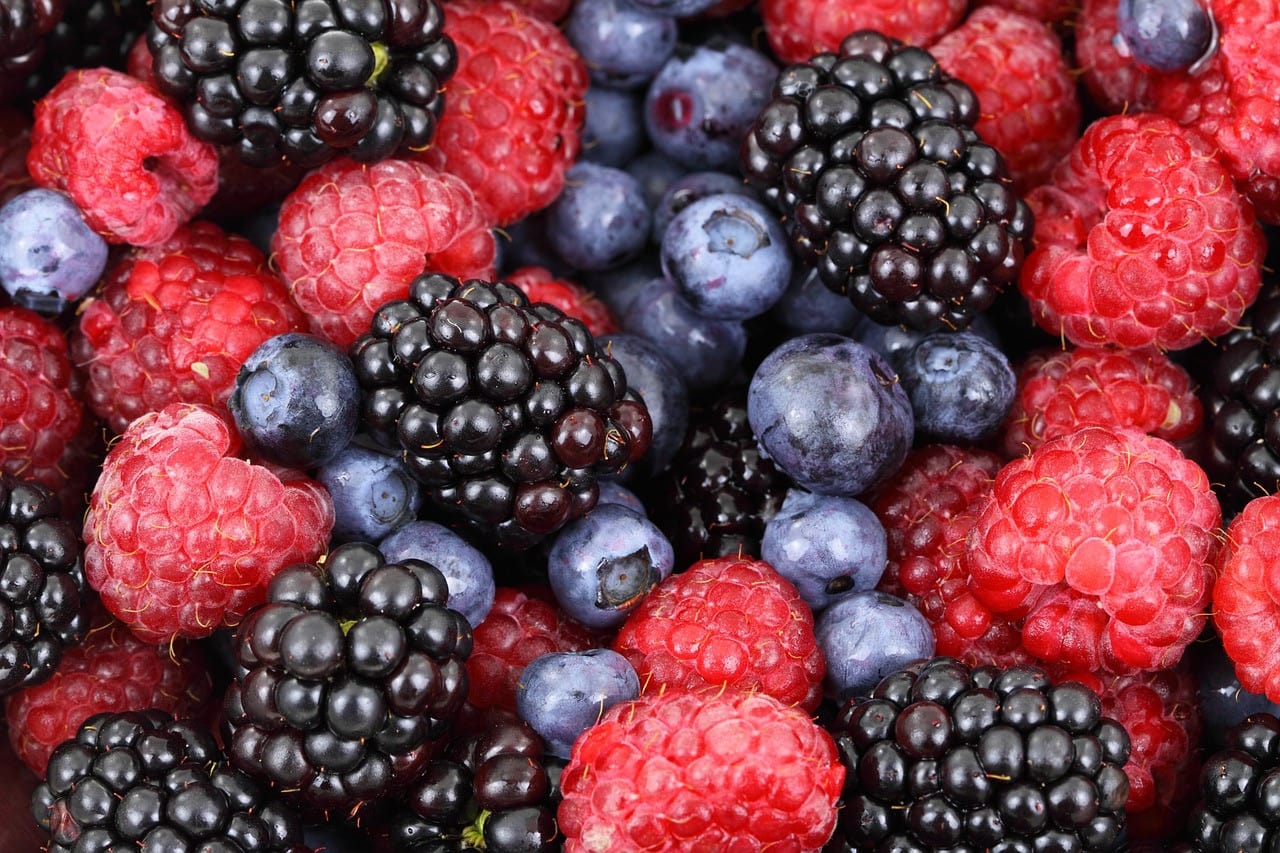
Blueberries, cranberries, gooseberries, dewberries, black currants – practically all fruits in the berry family (except bananas, which is a berry) are opposed to mushroom compost.
Although the soil pH may vary depending on the kind of berry you want to grow, all berries can’t tolerate mushroom compost because of its high alkalinity levels.
You Might Also Like How to Grow and Harvest Elderflower Berries
Alternatives to Mushroom Compost:
Some fruit bushes need a type of fertilizer that enhances or keeps the soil’s acidity. In this case, apply fertilizers that contain ammonium sulfate, particularly on blueberries.
Cranberries grow best on sandy soil with some peat added. But since this type of soil lack nitrogen, you need to add nitrogen-enriched fertilizers for the plant’s proper growth and productivity.
For fruit bushes that do well in slightly acidic soils, such as currants and gooseberries, add organic material such as peat or well-rotted compost. During the planting, use a well-balanced, slow-release fertilizer for the soil.
For after-planting care, you can use fertilizers high in phosphorus and potassium and low in nitrogen.
2. Gardenia
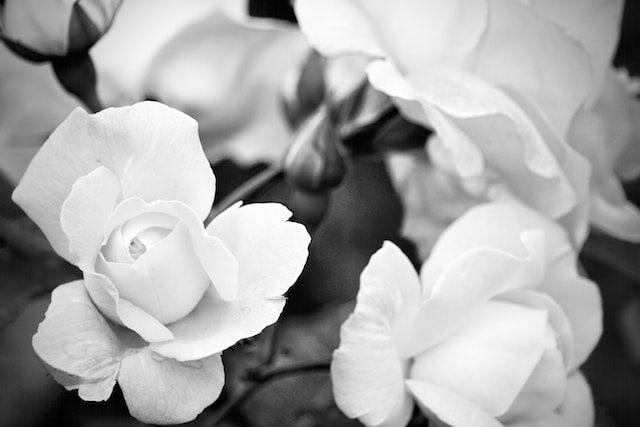
This sweet-smelling flowering plant with creamy white flowers and glossy dark green leaves grows and blooms best in well-drained, nutrient-rich, and acidic soil.
As ericaceous plants, they don’t like mushroom compost. The high alkaline content found in mushroom compost messes with the plant’s ability to absorb nutrients from the soil.
Alternatives to Mushroom Compost:
House plants or pot-grown gardenias need lime-free soil or compost. If it is necessary to amend the soil, use a lime-free soil conditioner, such as bonemeal, bloodmeal, and chemical fertilizers.
You can also mix natural fertilizers, like coffee grounds, fish emulsion, wood ashes, tea bags, or Epsom salts into the soil to improve soil quality.
You may add perlite and pumice for proper drainage and cover their soil with a layer of mulch to help retain moisture and suppress weed growth.
For easier application, use granular fertilizer that is gradually dissolved to provide the plant with slow-released nutrients that can last for several weeks.
3. Hydrangea
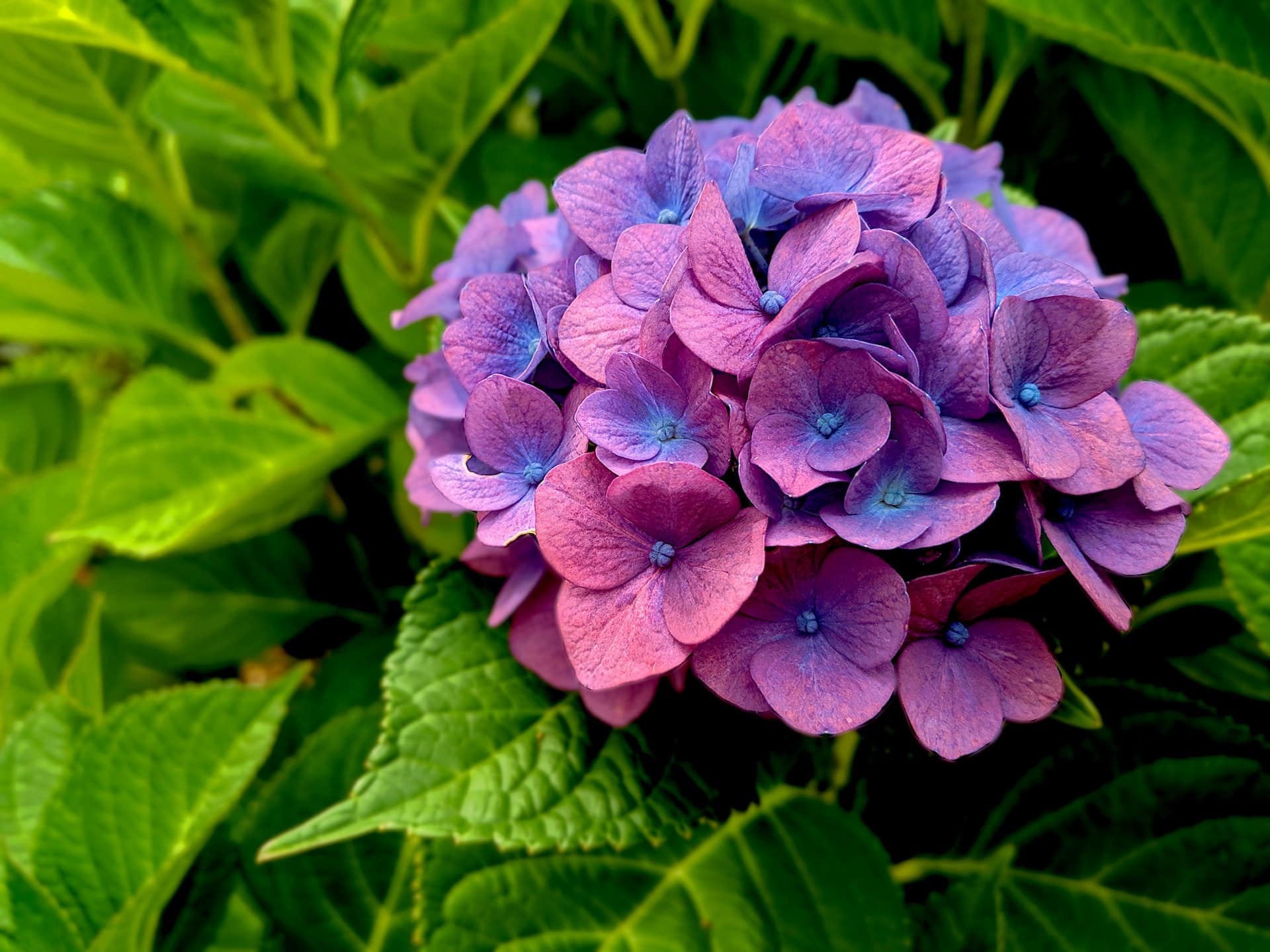
A flowering shrub with mesmerizing colors, the Hydrangea flowers change colors depending on the pH level of the soil. Hydrangeas planted on alkaline soils turn into pink flowers while those grown on acidic soil produce blue ones.
In neutral soil to slightly acidic soil, hydrangeas can have purple blooms or a mixture of pink and blue blooms on the same plant.
Although hydrangeas can tolerate a slightly alkaline environment, these plants don’t like mushroom compost because its high salt content can damage the plant.
You Might Also Like How To Fertilize Hydrangeas and How Often To Water Hydrangeas
Alternatives to Mushroom Compost:
To boost plant growth, use organic, slow-release, all-purpose, balanced fertilizer with a 10-10-10 ratio.
If you want to increase the size and quantity of their blooms, use organic, slow-release fertilizers with a 15-10-10 formula.
4. Rhododendron
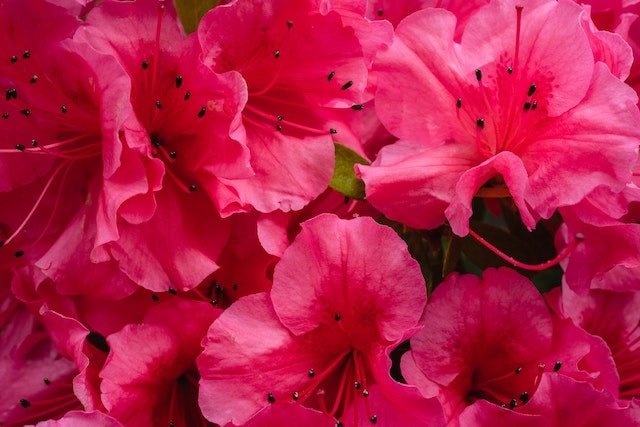
Rhododendrons are woody shrubs cherished for their healthy green foliage and clusters of beautiful, rose-like flowers. They can be a great addition to your flower garden.
As ericaceous plants, rhododendrons don’t like mushroom compost. They need acidic soil to grow.
You Might Also Like The Most Beautiful Rhododendron Varieties
Alternatives to Mushroom Compost:
Add peat-based compost to improve the condition of your soil. Peat soil is made from decomposed organic materials and is often found in wetland conditions like peatlands or peat bogs.
You can also acidify your soil using aluminum sulfate before planting rhododendron. But use it with caution as it can be toxic to the roots when applied in large quantities.
After planting, mulch rhododendrons with wood chips, composted pine needles, or shredded oak leaves to help maintain the desired soil pH.
5. Azalea
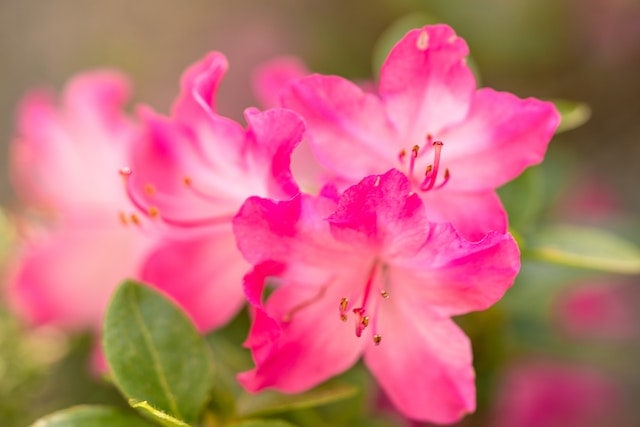
Like rhododendrons, Azaleas are also ericaceous plants that require neutral to acidic soils. They flourish in a moist, well-drained environment with plenty of organic matter.
Azaleas dislike pure sand, heavy clay soil, and alkaline soil, so mushroom compost should be avoided.
You Might Like Fertilizing Azaleas
Alternatives to Mushroom Compost:
Loam-based compost consisting of balanced mixtures of clay, sand, and silt is best for azalea. This type of compost feeds the plant with beneficial nutrients and helps improve the water-holding capacity of the soil.
You can also use peat moss to maintain the right level of soil pH for the plant’s proper growth.
6. Heather
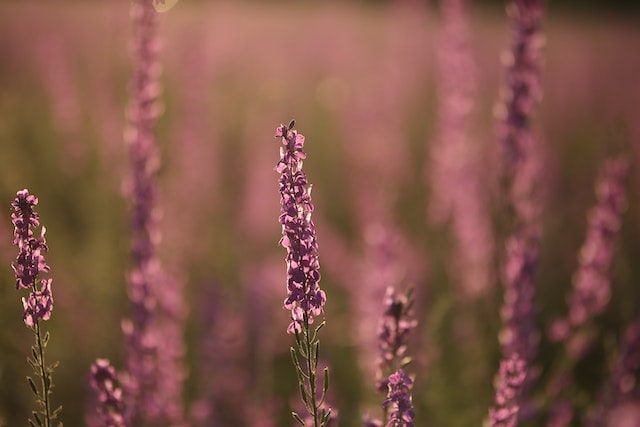
Calluna heathers are hardy perennials that prefer slightly acidic, moist soil. They can survive in very poor, rocky soil conditions, but it has to be acidic.
It is better for heather plants to be put in containers or pots if you want to grow them.
Alternatives to Mushroom Compost
If growing heathers in a container, apply ericaceous compost. If the soil is neutral or alkaline, treat it with moist peat moss to lower its pH.
You can also amend the potting soil using organic compost or mulch to help the plant grow.
You May Also Like Fertilize Banana
7. Holly
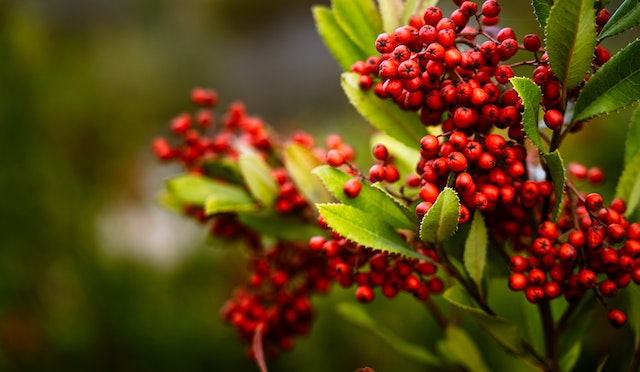
Known for its bright red berries and green spiky leaves, Holly plant is often a favorite ornament during the holiday season.
This hardy plant prefers growing in full sun, but it is able to survive cold weather and other adverse climactic conditions like drought, flooding, or wind. It can also tolerate different soil types.
However, it does not like growing in alkaline soil. For that reason, you cannot mix mushroom compost with the soil.
Alternatives to Mushroom Compost:
Use slow-release fertilizers that contain nitrogen to fertilize the Holy plant in the early spring and fall after a frost.
You can also use organic compost as a soil conditioner or as a much to increase and maintain soil acidity. This compost may contain horse or cow manure, wood chips, and pine needles.
8. Juniper
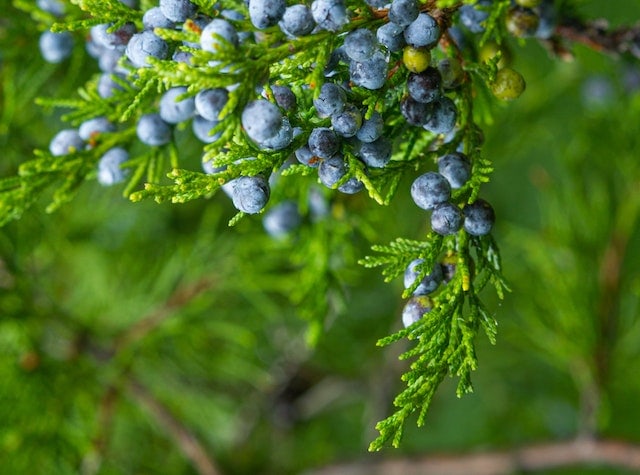
Juniper is a hardy plant that can do well in different soil amendments, but the best soil composition for this plant is equal parts garden soil, organic matter, and a few small stones for proper drainage.
As acid loving plants, juniper shrubs grow best in acidic to neutral soil. But they can tolerate neutral to slightly alkaline soil.
But because junipers don’t like their roots to be soaked in water, mushroom compost should not be used because the compost retains water longer than any other compost.
Alternatives to Mushroom Compost:
Homemade or commercial compost provides juniper with well-draining, nutrient-rich soil.
Mix organic matter such as well-rotted garden compost or leaf mold into the soil when planting.
As for commercial fertilizers, use the slow-release type of fertilizer that contains NPK formula, preferably with a ratio of 16-4-8.
9. Lupine
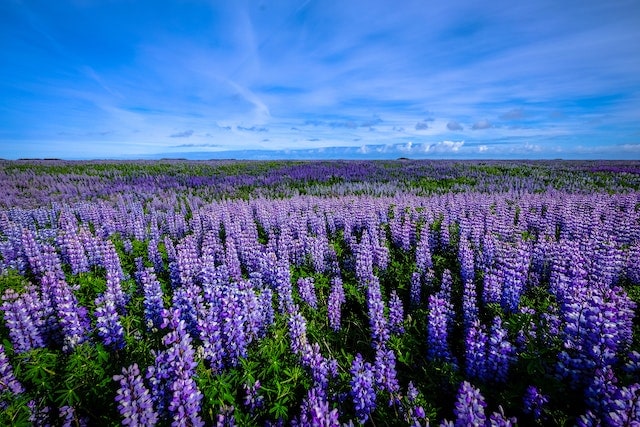
Lupine is a genus of flowering plants in the pea family, which has more than 199 species. The gorgeous flowers in the shades of pink, purple and red are such a lovely sight to see!
The thing is, lupines can actually improve soil quality, that’s why they are a perfect addition to your perennial bed.
The lupine plant prefers well-drained, moist soil that is slightly, but it can survive in highly acidic soil. This means you won’t be needing mushroom compost to increase the soil pH.
Alternatives to Mushroom Compost:
A general-purpose peat-based compost is ideal for lupines.
To encourage flower growth, use a fertilizer that contains phosphorus rather than nitrogen.
10. Japanese Maple (Acer)
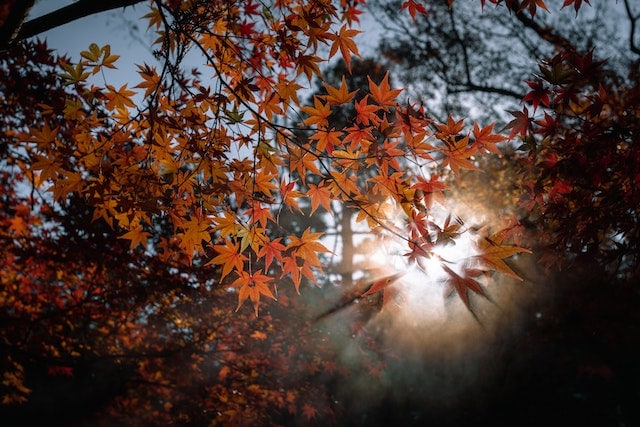
Famous for its flaming red leaves, a Japanese Maple can be grown in the garden or in containers.
Japanese Maple plants thrive in sandy or loamy soil that is rich in nutrients. They also prefer moderately acid to slightly acid soil.
Alkaline soil can cause stunted growth of Japanese maples and will also affect the color of their leaves, that’s why mushroom compost should be avoided.
Learn How To Fertilize Japanese Maple
Alternatives to Mushroom Compost:
Japanese maples require a well-rotted, free-draining compost that retains some moisture.
If planted in containers, good potting soil is loam-based John Innes number 2 or 3 mixed with equal parts of peat-free ericaceous compost for better soil structure, moisture retention, and colors in the leaves. You may also need to add sand for good drainage.
As an alternative, use a slow-release fertilizer.
11. Camellia
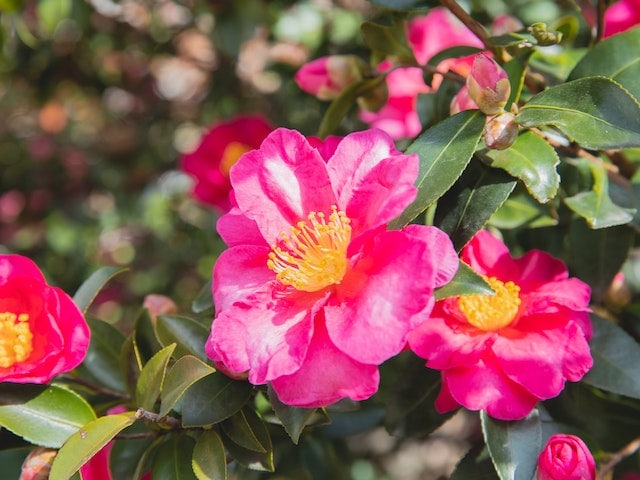
Camellias are perennial shrubs that produce lush, exquisite blossoms. They have different shades of pink flowers that can spice up your home garden, especially during the cold months.
As ericaceous plants, Camellias grow best in acid-to-neutral soil. These are some of the plants that don’t like mushroom compost because of its high salt content that can disturb the soil’s pH.
Alternatives to Mushroom Compost:
Pine needles or leaf mold can be added to the soil to balance out the pH levels.
You can also apply fertilizers, but make sure not to use too much nitrogen as it can potentially burn the leaves. Try using fertilizer for acid loving plants and look for those with organic substances that can encourage plant growth and the development of flowers and leaves.
12. Zinnia
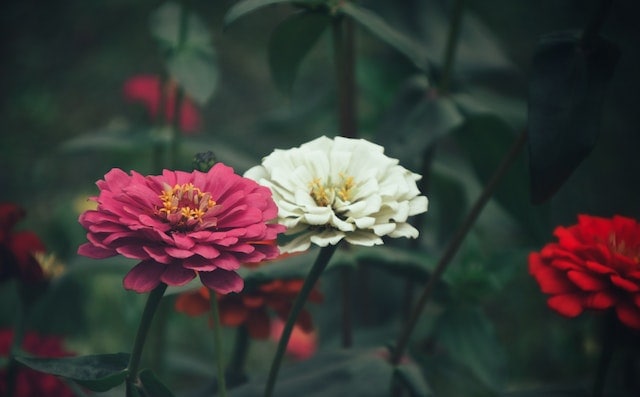
Zinnias are annual flowering plants that come in different shades of color. These plants thrive in well-draining and fertile soil, although they can tolerate dry conditions.
Zinnias can survive in various soil types. However, you cannot add mushroom compost as it will disturb the soil’s pH and can burn your plant with its high salt levels.
Alternatives to Mushroom Compost:
Zinnias are low maintenance, so you don’t have to fertilize them throughout the season. You can use well-balanced fertilizers that contain enough calcium and phosphorus necessary for flower production.
If you want them to grow flowers quickly, amend the soil using humus-rich organic compost.
13. Geraniums
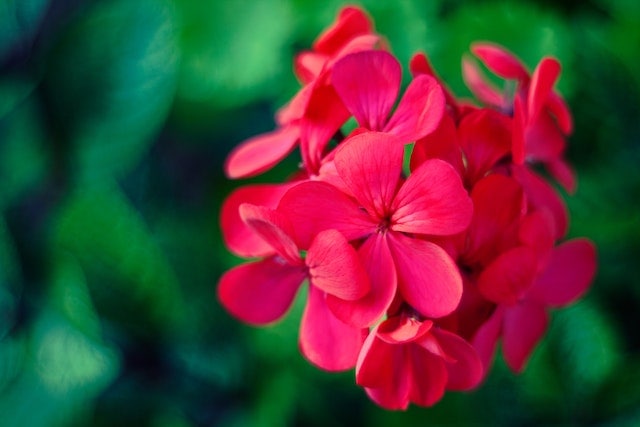
Geraniums are perennial plants with a beautiful cluster of blooms that are primarily used for ornamental purposes. They are not high maintenance, that’s why many gardeners love to grow them in their flower beds.
Definitely, they don’t like mushroom compost because they prefer acidic soil with a pH scale from 6.0 to 6.5.
You Might Also Like Fertilizing Geraniums
Alternatives to Mushroom Compost:
Geraniums love nutrient-rich organic compost. You can apply worm composting by mixing it with vegetable waste and using it as a slow-release fertilizer.
You can also use bone meal and slow-release fertilizer to encourage the flowers’ growth.
14. Magnolia
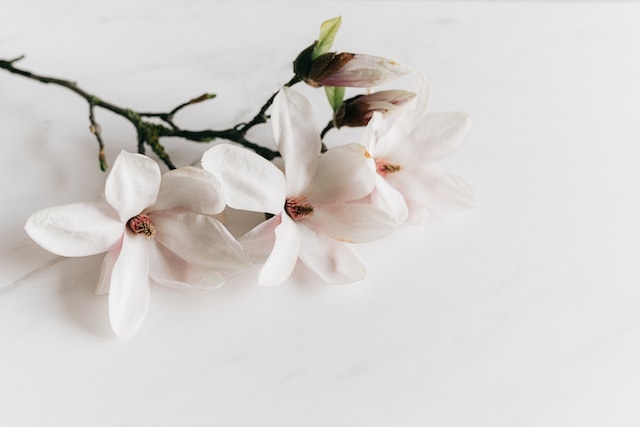
Magnolia is another genus of flowering plants that produce distinctly shaped and colored flowers. With about 340 different species, Magnolia trees are a must-have because they add beauty to the garden landscape.
These ericaceous plants thrive in acidic soils. Definitely, mushroom compost is not suitable for these plants.
You Might Also Like Magnolia Tree Fertilizer
Alternatives to Mushroom Compost
Magnolias need the soil moist, well-drained, and rich in organic matter. Before planting, it is recommended to mix well-rotted manure with the soil.
You can also incorporate ripe compost or a nitrogen-containing fertilizer that will encourage healthy green foliage and flower production.
15. Root vegetables
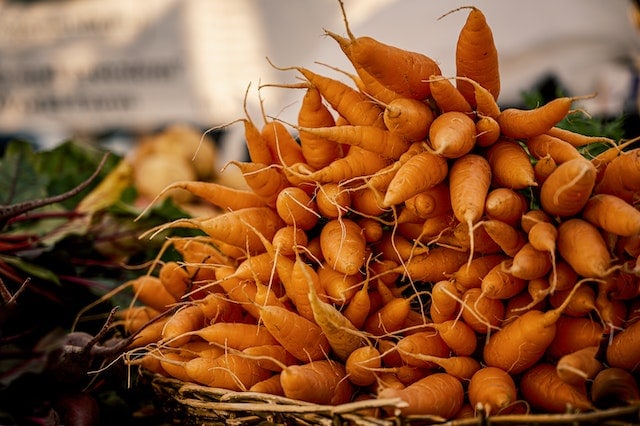
Root vegetables like potatoes, carrots, beets, and radishes are important food staples that you can grow in your vegetable garden. They are generally easy to grow if you give them proper care and treatment.
They do have something in common – they don’t like mushroom compost. The high salt content in mushroom compost is not good for these vegetable plants.
Alternatives to Mushroom Compost:
Root vegetables need extra phosphorus in their roots, so use wood ashes, bone meal, and rock phosphate to stimulate root development and improve the quality of the crop.
You can also apply high-quality compost or well-rotted manure on the soil for proper drainage, aeration, and slow-release nutrients.
What plants is mushroom compost not good for?
Mushroom compost is not good for all plants, specifically certain fruit trees, vegetable crops, herbs, and ericaceous plants that prefer acidic soils. This type of compost contains a high concentration of soluble salts that may damage salt-sensitive plants such as Rhododendron azalea, camellia, and other members of the heath family.
Where should you not use mushroom compost?
Mushroom compost should not be used to germinate seeds and young plants. The high salt levels in mushroom compost can do more harm to the germinating seeds and seedlings.
There are some plants that become resistant to salt from the soil when grown, and they include blueberries and camellias.
Can you grow plants directly in mushroom compost?
No, you have to mix mushroom compost with the soil. It should not be used alone to grow plants.
The soluble salts and other nutrients in fresh, undiluted mushroom compost can be too concentrated that they can kill germinating seeds or young plants. So, mixing the compost will dilute its salt levels and ensure nutrients are released slowly and evenly.
Final Thoughts
There are plants that don’t like mushroom compost despite all the nutrients it has to offer.
These plants need alternative types of compost to improve soil quality and facilitate their growth.
So, before using mushroom compost on plants that you are planning to grow, check out if these plants prefer acidic soils or not.
More likely, you’ll want to grow plants that are not compatible with the soil type around you. In that case, use soil amendments to lower its pH, but avoid mushroom compost if it is not suitable at all.
I hope the list above will help you decide what plants you want to grow in your garden.
Happy gardening!
